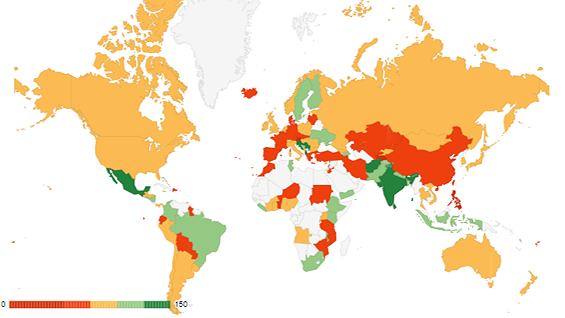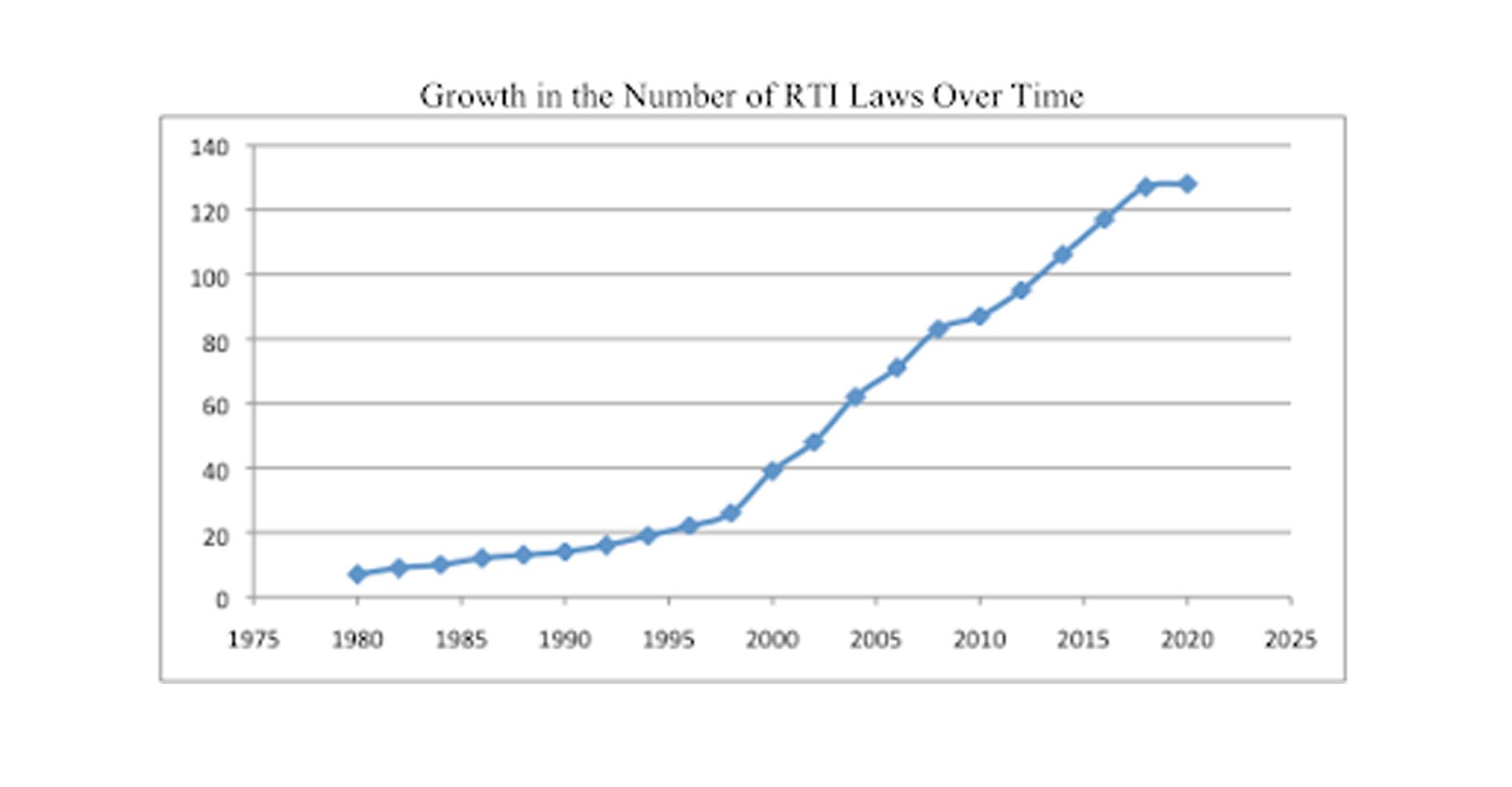
The History of the Right to Information
Toby Mendel
Executive Director
Centre for Law and Democracy
With the launch this week of Advocacy Assembly’s new course on The Right to Information for Human Rights Advocacy, it is perhaps time to reflect on the history of this now widely recognised right, which gives individuals a right to access information held by public authorities. In terms of longevity, the right to information is rather venerable by human rights standards, with the first law having been adopted in Sweden 255 years ago, in 1766. In contrast, the first Geneva Convention on the laws of war was adopted in 1864, 100 years later, and the first major human rights instrument, the Universal Declaration of Human Rights, was adopted in 1948, more than 180 years later.
However, by 1990, only 14 countries globally, all but one of them developed democracies, had adopted RTI laws. The pace of adoption picked up shortly thereafter, as shown in the chart below, and today some 136 countries, from all regions of the world, have these laws in place. Eastern and Central Europe was the first region to follow Western democracies in adopting RTI laws in significant numbers, followed by the Asia-Pacific region, Latin America and the Caribbean, Africa and finally the Middle East and North Africa.

This is by any measure remarkable progress in respect for a human right over such a short period of time. A key driver for this expansion was rapid processes of democratisation in different regions, or sometimes just countries, again starting with Eastern and Central Europe but then encompassing other regions. It may be noted that among the many competing demands for law reform in transitional democracies, calls for RTI laws are almost always prominent.
There is also little question that the civil society movement advocating for RTI, which has grown exponentially since the late 1990s, has also played an important role. The Freedom of Information Advocates Network (FOIAnet), the leading global network of civil society activists working on RTI, of which I am currently the Chair, was founded in 2002 and now counts over 250 organisational members and nearly 900 individuals on its distribution list. In addition to advocating for the adoption of laws, FOIAnet and its members have been active in terms of developing standards for RTI legislation and mobilising support from donors, inter-governmental organisations and others to promote effective implementation of these laws once adopted.
Ultimately, the very organic nature of the idea behind RTI – namely that government does not own the information it holds but, rather, is merely the custodian of it on behalf of citizens – along with the undoubted benefits from adopting RTI laws, must be recognised as the leading forces behind the rapid growth in adoption of new laws. The role of RTI in combating corruption, now formally recognised in the UN Convention Against Corruption, in fostering more and better public engagement in public decision-making and in holding governments to account are among the leading benefits of these laws.
Recognition of the right to information internationally as a human right has only come about fairly recently. It was only towards the end of the 1990s that the first international statements on a human right to information started to be made and it was not until 2006 that the first international human rights court, the Inter-American Court of Human Rights, recognised RTI as a human right in a formal legal decision. As of today, however, all of the main international and regional systems for human rights have recognised this right. And 66 countries protect the right to information in their constitutions, while another 27 have partial guarantees for it.
Although the first RTI law goes back over 250 years, as a popular phenomenon it is of relatively recent vintage, as is its recognition as a human right. But developments in this area have been truly spectacular over the last 30 years. This includes more than 120 new laws being adopted, recognition internationally as a human right, impressive growth in civil society focus on this issue, even many inter-governmental organisations adopting RTI policies, and recognition of RTI as a core development issue through its inclusion in the Sustainable Development Goals (SDGs). The challenge now will be to implement these laws properly!
Do you want to know more about Right to Information? Check out our free course by Centre of Law and Democracy about Right to Information for human rights advocates.
Related courses

90 mins
 School of Data
School of Data
90 mins
 School of Data
School of Data Rory Peck Trust
Rory Peck Trust
50 mins
 Rory Peck Trust
Rory Peck Trust
Blogs

6 useful resources for journalists covering Covid-19
With a global pandemic spreading throughout the world, journalists are under increasing pressure to report accurate and relevant news for the masses. Often when covering a crisis, those on the reporting frontlines compromise their physical safety and mental health. To show some solidarity, the Advocacy Assembly team curated a list of useful resources from other organisations leading the way on this.

5 ways to find data for your next story
Data journalism is fast becoming a big trend in newsrooms across the globe. However, data isn’t always so easy to find. Here are five ways to get data for your next article.



